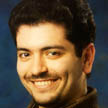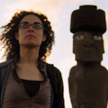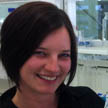I’m a Scientist is like school science lessons meet the X Factor! School students choose which scientist gets a prize of $1000 to communicate their work.
Scientists and students talk on this website. They both break down barriers, have fun and learn. But only the students get to vote.
This zone is the Organs Zone. It has scientists studying health and disease in various parts of our bodies. Who gets the prize? YOU decide!









Hi Harry and mharris13!
Thanks for your great question- the process of digestion involves a complex and coordinated set of behaviours. Mechanical digestion breaks down food (like your teeth and your small intestine). Chemical digestion (like saliva, acid in your stomach and enzymes from your pancreas) help to break the food into smaller particles so that nutrients can be absorbed into your body.
So you have your mouth (teeth, tongue, salivary glands and tastebuds), then the esophagus (passed food into your stomach), the stomach (stores food until it’s ready to be digested, breaks it down even further), small intestine (made up of the duodenum, jejunum and ileum – all involved in mixing, absorbing nutrients and propelling the undigested material further), the caecum/appendix (immune surveillance and contains important good bacteria), the large intestine (forms the feces/poo and absorbs water), the rectum (stores feces) and anus (expels undigested material as feces or solid waste). There are also other important organs that help your digestive system – the pancreas produces chemicals which help you feel hungry and balance the level of sugar in your blood (eg. insulin), you liver produces bile (and stores it in the gallbladder) which helps break down fat. Your liver is amazing- it has more than 450 jobs – another question!
0